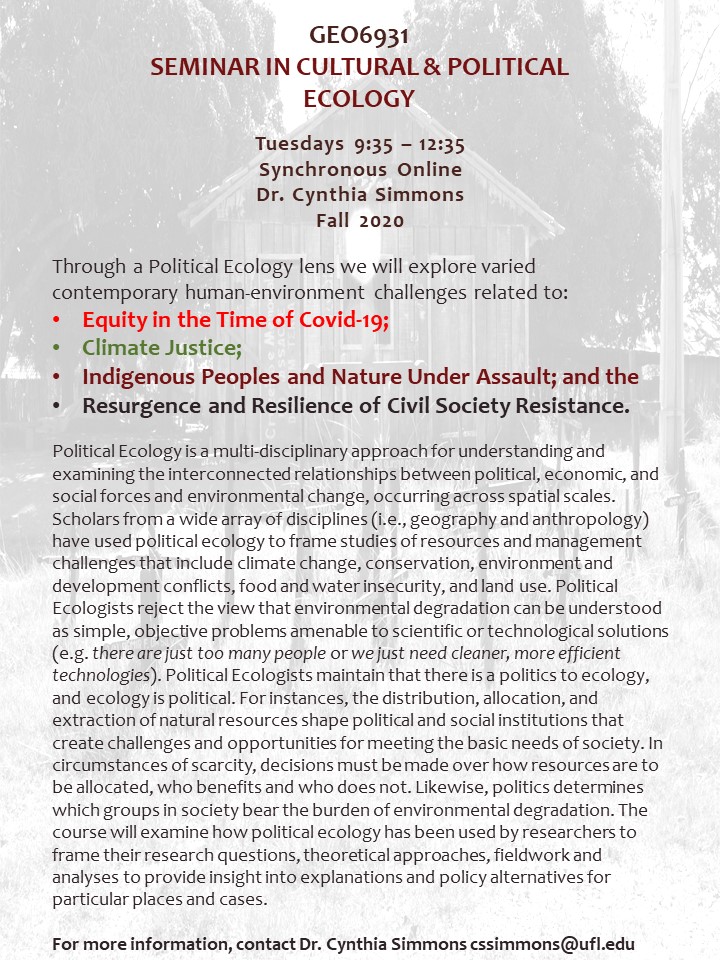
GEO6931 Seminar in Cultural & Political Ecology Fall 2020
Tuesdays 9:35 – 12:35
Synchronous Online
Dr. Cynthia Simmons
Fall 2020
Through a Political Ecology lens we will explore varied contemporary human-environment challenges related to:
Equity in the Time of Covid-19;
Climate Justice;
Indigenous Peoples and Nature Under Assault; and the
Resurgence and Resilience of Civil Society Resistance.
Political Ecology is a multi-disciplinary approach for understanding and examining the interconnected relationships between political, economic, and social forces and environmental change, occurring across spatial scales. Scholars from a wide array of disciplines (i.e., geography and anthropology) have used political ecology to frame studies of resources and management challenges that include climate change, conservation, environment and development conflicts, food and water insecurity, and land use. Political Ecologists reject the view that environmental degradation can be understood as simple, objective problems amenable to scientific or technological solutions (e.g. there are just too many people or we just need cleaner, more efficient technologies). Political Ecologists maintain that there is a politics to ecology, and ecology is political. For instances, the distribution, allocation, and extraction of natural resources shape political and social institutions that create challenges and opportunities for meeting the basic needs of society. In circumstances of scarcity, decisions must be made over how resources are to be allocated, who benefits and who does not. Likewise, politics determines which groups in society bear the burden of environmental degradation. The course will examine how political ecology has been used by researchers to frame their research questions, theoretical approaches, fieldwork and analyses to provide insight into explanations and policy alternatives for particular places and cases.
For more information, contact Dr. Cynthia Simmons cssimmons@ufl.edu